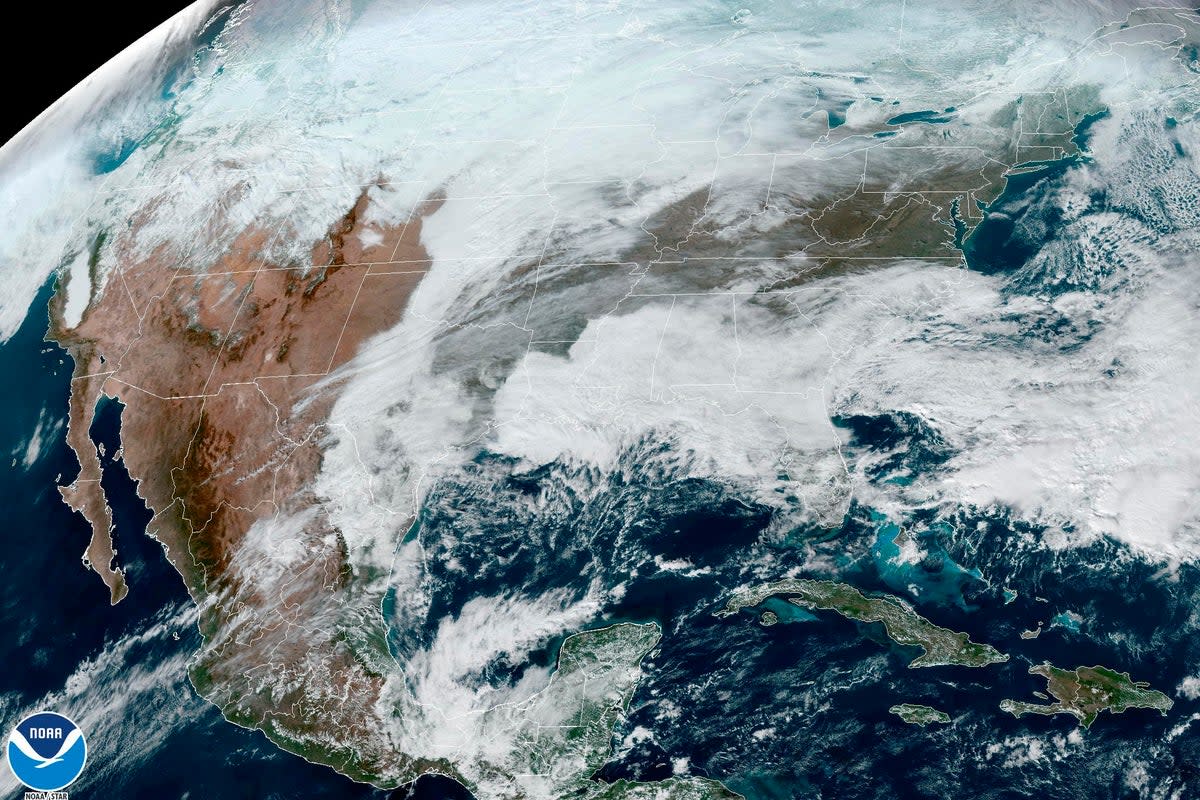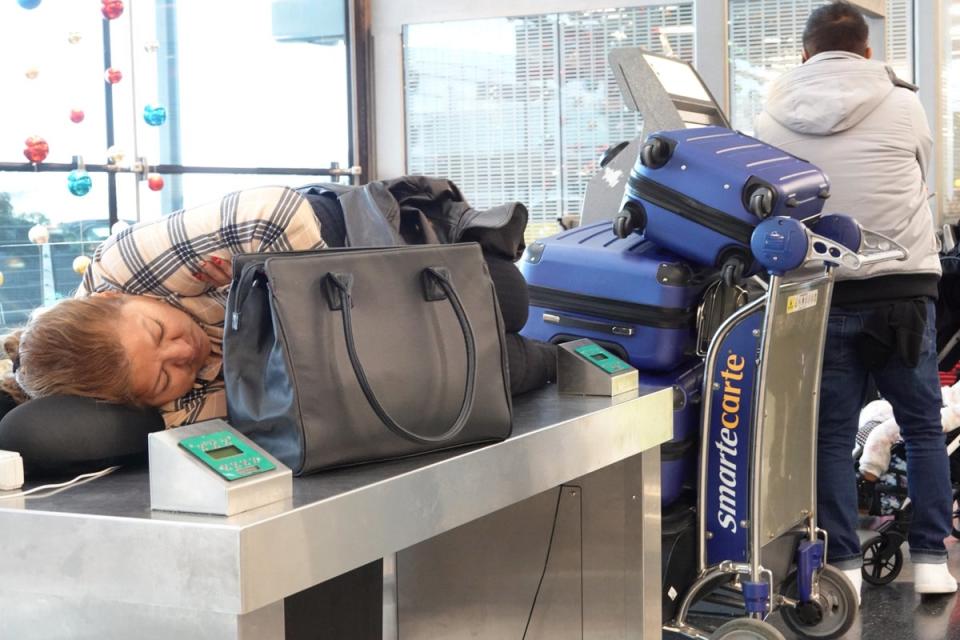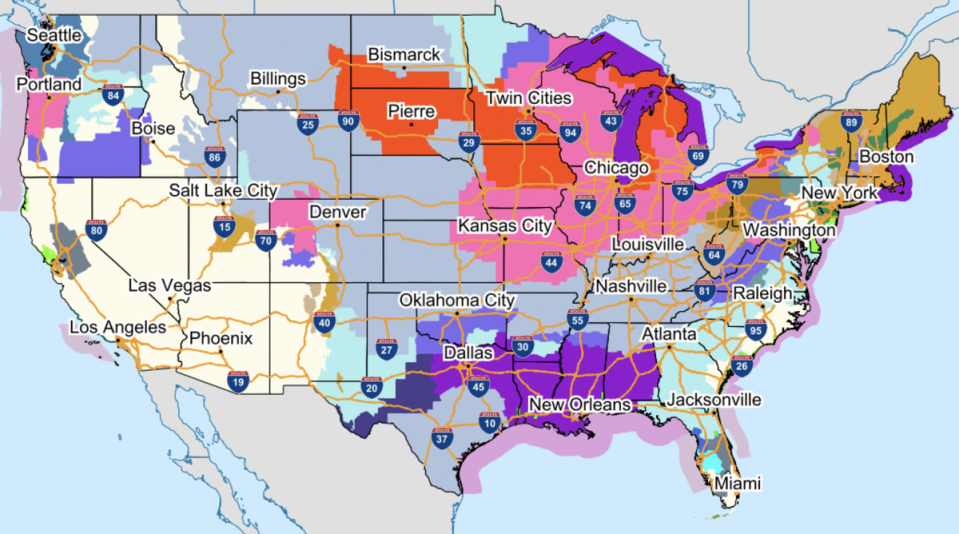Winter storm warning: ‘Once-in-a-generation’ storms sweeps 30 states from Washington to Florida

- Oops!Something went wrong.Please try again later.
An Arctic blast will sweep the United States on Thursday, affecting 30 states from Washington to Florida this holiday season with a miserable mix of dangerous cold, blinding snow squalls and flash freezing.
The powerful winter storm will produce widespread, disruptive and potentially crippling impacts across the central and eastern United States between now and Christmas Eve, the National Weather Service (NWS) warned.
The weather system is so large that about 200 million people are under winter storm warnings and advisories today. Some states declared emergencies due to the conditions.
Daytime temperatures across areas of Kansas, Oklahoma and other Plains states will struggle to get above freezing, while areas further south in Texas and on Florida’s Gulf Coast will experience temperatures in the single digits and teens on Thursday evening.
President Joe Biden is set to receive a winter storm briefing from the NWS and the Federal Emergency Management Agency (FEMA). He told reporters on Thursday that the storm and the extreme cold weather were “dangerous” and “threatening”.
“I encourage everyone, everyone to please heed the local warnings. We’ve tried to contact 26 governors so far in affected regions. Go to weather.gov for more information,” President Biden said. “This is not like a snow day when you were a kid. This is serious stuff.”
The president urged people who are travelling to leave early ahead of the storm. He said that he was sending White House staff out early who planned to travel tomorrow or tonight, adding that they can talk to him by phone if need be.
The NWS Buffalo office in upstate New York warned of a “once-in-a-generation storm”, while Kentucky Governor Andy Beshear described the conditions as ‘really, really dangerous” as he declared a state of emergency.
“After tornadoes and floods, pandemics and multiple ice storms just in these last three years, I don’t want to lose one person to this Arctic front that is coming through,” Governor Beshear said on Wednesday.
Snow squalls, or bursts of moderate to heavy snow lasting up to two hours, are likely to occur immediately behind the Arctic front as it treks from the mid-Mississippi Valley to the east coast.
The snow could lead to extremely hazardous travel conditions at times as it will be accompanied by gusts up to 40mph and the potential for sudden whiteout conditions.

Areas with standing water, particularly throughout the Ohio and Tennessee Valleys, could experience a flash freeze on Thursday afternoon and evening due to the extreme temperature drops.
Flight and road delays are expected across the country during what is one of the busiest travel periods of the year. Early on Thursday, US airports had 62 flight cancellations and 157 delays.
Power outages and downed trees will also be more likely across many areas as forecasters warned of powerful, gusty winds. More than 11,000 homes were without power in Kansas on Thursday and nearly 8,000 in Oregon, according to utility tracker poweroutage.us.
Record-breaking cold and life-threatening wind chills are forecast over the Great Plains before moving into the eastern half of the country by Friday.

Temperatures across the Plains have already plummeted by 50F (10C) in a matter of hours in places. These temperatures, combined with 20-30mph sustained winds and gusts of up to 60 mph, will cause wind chills as low as minus 40F across mountainous parts of the western US and the Plains. In some spots, minus 50-70F is possible in the coming days.
“Wind chills of this magnitude can cause frostbite in less than five minutes if precautions are not taken, with hypothermia and death also possible from prolonged exposure to the cold,” the NWS warned.
Significant freezing rain is possible across parts of western Oregon and Washington from Thursday.

